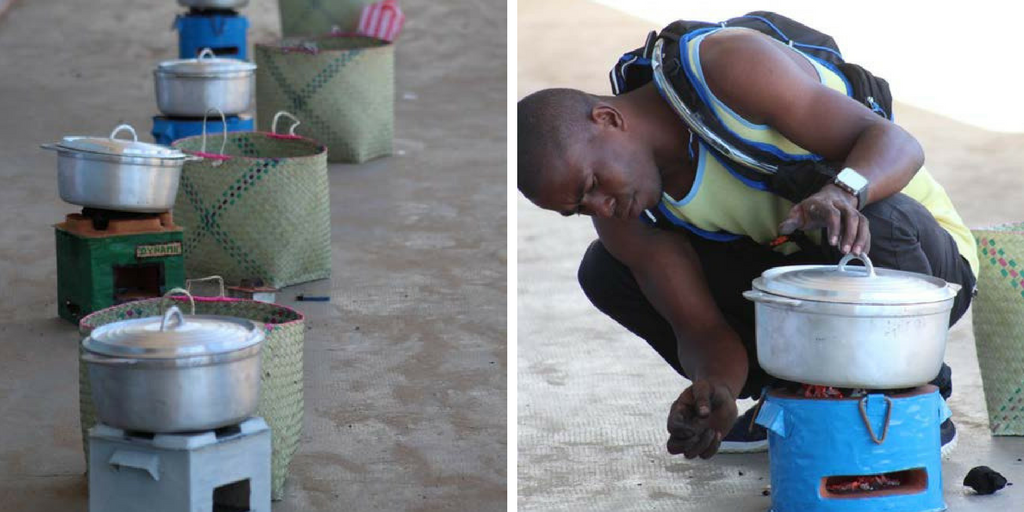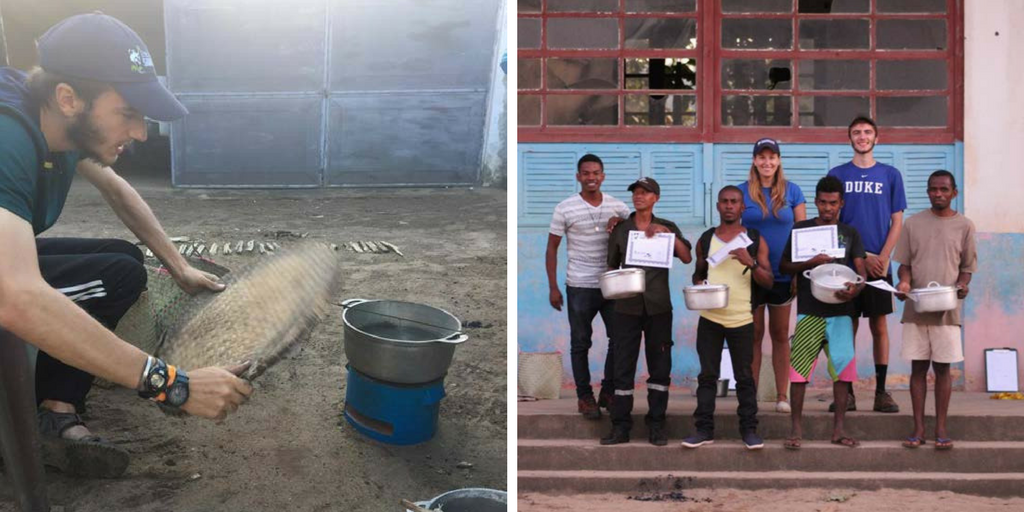Let’s Get Cooking! Researching the Impacts of Traditional Cooking Practices
Tommy Klug ’18 participated in the Bass Connections project team Cookstoves and Air Pollution in Madagascar: Finding Winning Solutions for Human Health and Biodiversity. In the latest Duke Lemur Center-SAVA Conversation newsletter, he provides an update on his continuing research in the SAVA region of northeast Madagascar.

The impacts of traditional biomass cooking in developing countries is becoming increasingly evident. The World Health Organization estimates that air pollution (particularly indoor air pollution) causes over 7 million premature deaths every year. Biomass cooking, such as with wood and charcoal, also places high demand on the environment, and is a global driver of deforestation. Madagascar is no exception.
This summer, I spent 10 weeks in the SAVA working with the Duke Lemur Center to conduct research on the impacts of traditional cooking and learn about what efforts are already underway to combat the issue. DukeEngage funded my summer as an extension of the work done by the Bass Connections team last summer.
I spent half of my time in Mandena (a small village outside Marojejy National Park) collaborating with the Bass team to study the effects of indoor air pollution on respiratory health. We enrolled about 23 individuals to wear a personal exposure backpack for 24 hours while another device recorded lung function and heart rate variability.
Personal exposure monitors measured particulate matter (2.5 microns), carbon monoxide and carbon dioxide. These backpacks helped provide us a better idea of how much air pollution Malagasy cooks are exposed to on a daily basis. Additionally, we surveyed homes on their wood collection habits to give us an understanding of the stresses fuel collection places on the local environment.
For the second half of the summer, I lived in Sambava and tested stove models at the DLC office. I found these stoves for sale in the SAVA region towns of Sambava, Andapa and Antalaha. Community cookstove competitions were held in Antalaha and Andapa with the help of the DLC-SAVA team. Competitors checked in their stoves and were given a standard amount of fuel. They were tasked with boiling 3L of water as quickly as possible, and then competitors had to cook two standard cups of rice (which was eaten afterwards!). All participants were awarded with certificates, pots and spoons.

In addition to the competitions, cookstove maker surveys were conducted across the region to supplement the cookstove preference data that third year Peace Corps Volunteer and project collaborator Libby Davis will be collecting over the next year with the DLC. The work I completed this summer will come together in a cookstove catalogue for DLC-SAVA to use as a reference guide for their clean cooking initiative in the future. Once the data are analyzed, our hope is to identify a cookstove model that reduces toxic emissions and burns fuel more efficiently. This would create positive outcomes for both the Malagasy people and the environment.
Thank you to the DLC-SAVA team for working with me this summer and supporting this project!
By Tommy Klug; originally published in the October 2017 newsletter from Duke Lemur Center-SAVA Conservation
Learn More
- Read more about this project team.
- Explore Bass Connections in Global Health.
- Find out how to get involved, and save the date for the Bass Connections Fair on January 24.
Photos at top: Different stove models lined up for competition; a stove being tended by a competition participant; photos at bottom: Tommy working hard to get a cookstove to boil water; Libby and Tommy with competition winners